262 DOGS HAVE NEEDS TOO
DOGS HAVE NEEDS TOO
by David Hancock
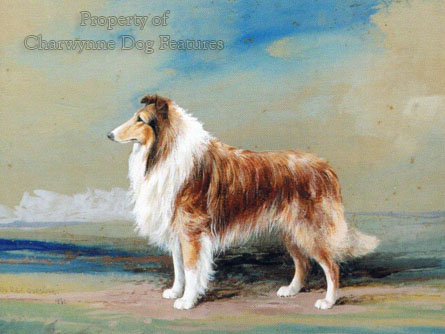 "Man is not dog's best friend because he has made the dog in his own image. He has projected his needs for freedom, virility, strength and courage onto his dog and finds support in it for other needs, companionship, status, affection and a child substitute. But dogs have needs too. Only when man learns to see the dog for what it is and himself for what he is can he free his dog from some of the frustrations of the modern world." Those profound words were written by the distinguished animal behaviourist Dr. Michael Fox over twenty years ago. More recently, a detailed study by four Ontario veterinary surgeons into the health of the contemporary pedigree dog contained this conclusion: "The next 100 years look rather bleak for the pure-dog industry unless dramatic changes are introduced. We have a problem which if not addressed and speedily rectified may destroy for all time many beautiful breeds of dog. All dog lovers share the blame for not acting..."
"Man is not dog's best friend because he has made the dog in his own image. He has projected his needs for freedom, virility, strength and courage onto his dog and finds support in it for other needs, companionship, status, affection and a child substitute. But dogs have needs too. Only when man learns to see the dog for what it is and himself for what he is can he free his dog from some of the frustrations of the modern world." Those profound words were written by the distinguished animal behaviourist Dr. Michael Fox over twenty years ago. More recently, a detailed study by four Ontario veterinary surgeons into the health of the contemporary pedigree dog contained this conclusion: "The next 100 years look rather bleak for the pure-dog industry unless dramatic changes are introduced. We have a problem which if not addressed and speedily rectified may destroy for all time many beautiful breeds of dog. All dog lovers share the blame for not acting..."
But if you do step forward and act and if you try to do your bit to make people see dog for what it is, what reaction can you expect even from within the dog world? Nothing but hostility, animosity, cold indifference or a curt dismissal of any discussion on the subject. The Kennel Club can produce a spokesman or a comment with a consistent approach to any remotely controversial subject, i.e. the problem doesn't actually exist! Playing for time never wins matches but it sometimes avoids defeat. But when an authoritative statement is desperately needed, for the good name of dog or dog-breeders, the KC is only too willing to keep its head down.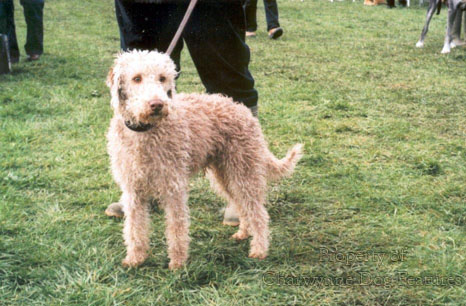
The Sale of Goods Act is increasingly being used by disappointed or cheated members of the public over unsatisfactory pedigree dog trading. The case at Swindon County Court in July 1997 concluded with the finding that the dog in question "was not suitable for the purpose" for which it had been traded. This, surely, is the moment for the top body in the pedigree dog world to speak up, either to condemn or defend, but not to hide. The honourable dog breeders need to know that dishonest trading in dogs is not condoned, or, in the interests of fair play, "vexatious litigation" exposed. But the judgement must be: what is in the best interests of dogs? Breeders selling pups carrying inheritable defects should expect to get little sympathy from any responsible body or the news media. If dogdom doesn't sort out its problems then the lawyers will!
If you stand up at a breed seminar and plead for dogs of that breed to be bred to a healthier design, you will largely be ignored; the wallet rules! If you try to expose flagrant breaches of official and accepted breed standards, the culprits will twist and turn and then resort to semantics. If products with harmful exaggerations sell well, why bring ethics into the equation? If you forward complaints made legitimately by angry members of the public to a breed committee, you can expect little action. Sometimes dodgy breeders make a point of getting on committees so that their low personal standards can become corporate ones. Sadly, all too often in the world of the pedigree dog, the needs of the dogs come last.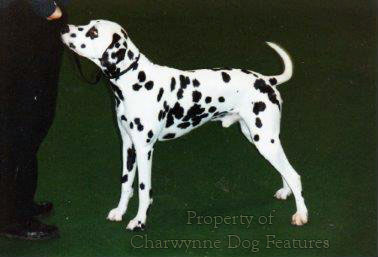
There are some parallels in the pedigree dog breeding world with the highly regrettable BSE crisis: people in responsible positions keeping their heads down to achieve an easy life, the lowering of health controls to ensure higher financial returns and the insane notion that the whole problem will go away or cure itself. The long term result will be the same: financial ruin for some and widespread distress for the animals in question. The health problems in pedigree dogs are not likely to go away or cure themselves and widescale long term distress to dogs is inevitable. Livestock breeding will only ever be successful in the long term if two factors prevail: firstly the sustained pursuit of excellence and secondly mandatory health controls or clearances.
The ability of any citizen to set up tomorrow as a pedigree dog breeder and register the resultant stock may sound an admirable freedom or right of man in a free society. But the pedigree dog, a subject creature, has rights too. The likelihood of any puppy leading a happy healthy life rests with man. There is an element of unacceptable recklessness in the way dog breeding is permitted to function in Britain which imperils both the health and the happiness of dog in today's society. The sheer overproduction of puppies is probably more easily overcome, if the will is there, than the production, in some numbers, of dogs unwisely or unskilfully bred. All dog breeders have to ask themselves this crucial question: am I breeding dogs to indulge myself or am I contributing to a breed?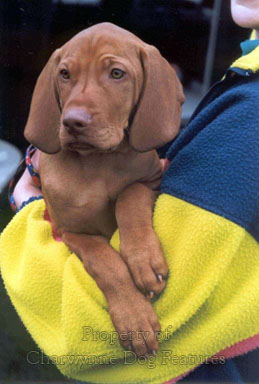
The fundamental concept that dog breeding can be conducted without controls is seriously flawed, out of touch with our knowledge of human nature and out of step with thinking in the rest of Europe. From being the nation which initially formalised pedigree dog breeding we have slipped to being a nation fast conceding pole position through a lack of vision at the top, low standards at the bottom and benign torpor in the middle. The setting up of the British Dog Breeders Council is an encouraging sign. Their admirable Code of Conduct includes these clauses:
1.3 Members shall at all times maintain the highest possible standard of care, health and welfare of all dogs in their care. And...
2.2 Members shall breed only with bitches and dogs which are to their knowledge physically sound, in good health and of acceptable temperament and free from known hereditary defects.
Members infringing this code of conduct face expulsion. But shouldn't the supreme body in the pedigree dog world, our Kennel Club, insist that every breed club or society registered with them must possess such a code?
Wouldn't it be sublime if an enlightened dog-lover won the lottery, a huge sum, and, wanting dogs to benefit, decided to establish a new national kennel club in Britain. As in the United States, where there are a number of kennel clubs, he felt that dog owners should have the benefit of choice. He gave his new kennel club a motto: "For the good of dogs". He decided against a London headquarters but opted for a base in the heart of England, at Stoneleigh, sharing the Royal Showground with other interested parties, to reduce running costs. Here, his kennel club, to be known as the Benevolent Kennel Club or BKC could offer a show site, a seminar location and a breed club meeting place for AGMs etc. He also planned a Museum of the Domestic Dog, a permanent shop selling approved commercial lines, supported by caravan and camping facilities. He was determined to provide a comprehensive service to his members.
Membership of the BKC was made available to all dog owners who registered their dog with the club; they obtained a share in his company for every dog registered with health clearances. Each member was to have full voting rights at BKC meetings, where policy was to be shaped. Committees were not favoured but a small working group instituted to produce action on each problem area needing a solution. IBM and ICL were asked to tender for computer services and professional archivists appointed to control and monitor all registrations.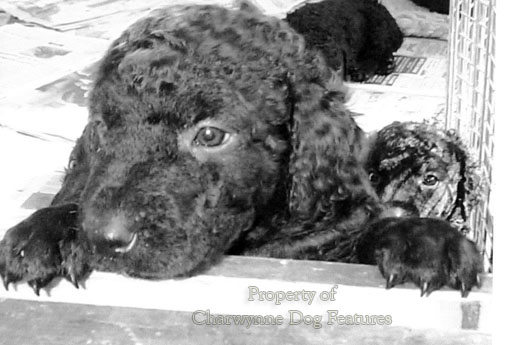
The pedigrees available for registered dogs were to be five generation but contain information beyond the mere recording of gender, an allotted number, date of birth and colour of coat. Details on all ancestors were to cover good points of their physical conformation to the breed standard and temperament, based on show critiques and breed society records. The number and names of others in the litter of the registered dog were to be listed, whether the birth was natural, how many whelps were reared, the breed survey rating and line breeding details. Each member breed society was required to have a breed archivist and a breeding advisor, trained by an appointed geneticist.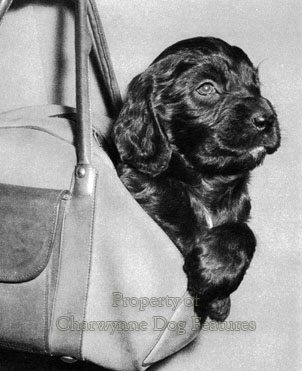
The best dogs on a five-generation pedigree were to be graded TG or top grade, then the others marked in descending order, in other grades: HG or high grade, SG or sound grade and Sat G or satisfactory. No Sat G dogs could be used for breeding and their progeny registered. No dog could be used for breeding and have progeny registered unless it had first obtained health clearances, especially eye tests and hip-scoring. Each pup was to be DNA-sampled, tattooed whilst still with the dam and micro-chipped later -- at the expense of BKC. The pursuit of better-bred healthier dogs was to be the main motivation, not the production of puppies for sale, other less high-minded kennel clubs could offer that. The BKC was not to be mainly financed by the income from registrations; that encourages overproduction.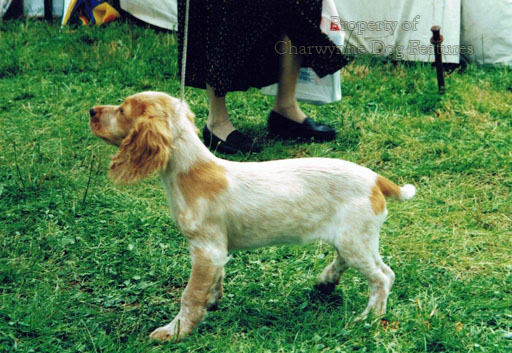
Of course all this is fanciful, we already have a system of supervising pedigree dog breeding in Britain. Here are some of its results: The dog insurance companies charge lower premiums for mongrels and cross-bred dogs because they are deemed to be more virile; The Guide Dogs for the Blind Association now employ 43% cross-bred dogs because they find them more suitable than pedigree dogs; only 20,000 dogs per year are being tested under the joint KC/BVA Canine Health Schemes (Hip Dysplasia and Inherited Eye Disease) whilst an additional 250,000 dogs are registered per year, twenty different breeds are now prone to inherited canine cataracts, 80 separate breeds are now reported to be liable to PRA, 16 different breeds suffer from CPA, 16 breeds can get retinal dysplasia, nearly 10 breeds of terrier can get primary lens luxation...dare I mention hip dysplasia, bone disorders, heart diseases, epilepsy, vWD, cancer, chronic skin diseases, the incidence of CEA in Collies, copper toxicosis in Bedlington Terriers and deafness in Dalmatians or refer to the pressing problem of the inheritability of unstable temperament.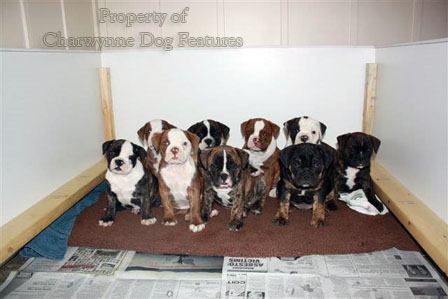
Every time inheritable defects are raised in anger details of the same old voluntary schemes are trotted out as if it were some sort of panacea. Tell me of the breeders who will and never will take part in such voluntary schemes; the responsible will, the irresponsible never will -- and who will produce the most litters? The genetic health of a breed depends on the genetic status of the top stud dogs but who knows what that is? The top stud dog in a breed I favour has no health clearances and 59 different ancestors out of 62 in his five generation pedigree. How can the owner of any bitch put to him have any idea of the outcome, either for type and conformation or genetic health. Do pedigree dog breeders, with a few notable exceptions, have the knowledge to be breeding these precious dogs?
The needs of dog breeders are well known, that is why the KC has had to try to reduce overproduction by litter quotas. But subject creatures like the revered domestic dog simply can't be left to the mercy of wallet-conscious puppy-producers. The needs of dog have to be acknowledged and then met. No, we don't want the KC to form a committee on this to report in three years time! WE surely want every pedigree dog to have the best chance of a long and healthy life, free of man-inflicted exaggerations and harmful design features. Is that too much to ask? Surely not. But can the current system produce such a desirable outcome? Not on its record to date. As the Canadian veterinary surgeons are telling us, clearly and unambiguously, unless dramatic changes are introduced...it will be too late.